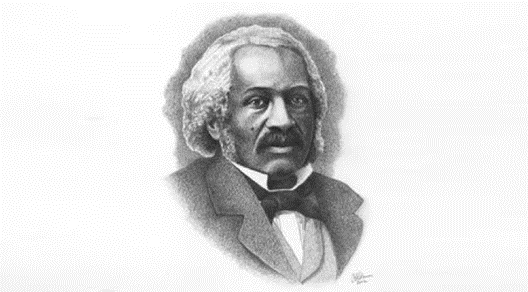
Honoring Black History Month: Ten African-American medical pioneers
Since as early as the American Revolutionary War, African-Americans have made crucial advancements for the medical and healthcare communities. Without their commitment to science, humanity and progress, often in the face of adversity, our level of medical care might look very different. From important discoveries in cancer treatments to trailblazing open-heart surgery, Adventist Health honors Black History Month by celebrating ten medical pioneers and their work.
- Dr. Daniel Williams
Not only was Dr. Williams one of the first physicians to perform a successful open-heart (pericardial) surgery, he additionally founded the first interracial and black-owned hospital in 1893: Chicago’s Provident Hospital. As the first African-American member of the American College of Surgeons, he then went on to co-found the National Medical Association with Dr. Robert Boyd. - Dr. James McCune Smith
Though Dr. Smith was the first African-American to practice with a medical degree in the U.S. in 1837, due to the practice of slavery, he had to earn his medical degree from the University of Glasgow, Scotland. An abolitionist and an intellectual, Dr. Smith used his medical background and affinity for mathematics to reshape conceptions about race. - Dr. Rebecca Crumpler
In 1864, Dr. Crumpler was the first black woman to earn a medical degree from a U.S. college, graduating from New England Female Medical College. She went on to publish a work entitled Book of Medical Discourses, designed to assist women in caring for the health of their families. - Dr. Charles Drew
After becoming one of the first African-Americans to earn an MD from Columbia University, Dr. Drew developed methods of storing blood plasma for transfusion, organizing the first large-scale blood bank in the U.S. during WWII. After the war, Dr. Drew began developing a blood storage program at the American Red Cross, but then resigned after officials segregated the blood of African-Americans from other races. Persevering, Dr. Drew worked to become chief surgeon at Freedman's Hospital in Washington D.C. and later the first black examiner for the American Board of Surgery. - Dr. Ben Carson
Not only was Dr. Carson one of the youngest physicians to direct pediatric neurosurgery at Johns Hopkins, in 1987 he became the first neurosurgeon to successfully separate conjoined twins attached at the back of the head. In 2016, Dr. Carson went on to run for President of the United States and now serves as the secretary of the Department of Housing and Urban Development under President Donald Trump. - Dr. Louis T. Wright
Following his father’s footsteps, Dr. Louis T. Wright became a physician in 1915. Shortly after, Dr. Wright joined the army and fought in WWI, developing a better vaccination technique to protect his fellow soldiers from smallpox. After the war, Dr. Wright became the first African-American surgeon hired by the New York City Police Department. Credited as a pioneer of modern antibiotics in the 1940s, Wright led a team that studied how the antibiotic Chlortetracycline affects humans. - Dr. Jane Wright
The daughter of Dr. Louis T. Wright, Dr. Jane Wright followed her father’s example and reshaped the face of medicine. Dr. Jane Wright is best known for her research surrounding chemotherapy, developing the technique into a viable option for cancer treatment. Her efforts earned her a position as the first African-American and female president of the New York Cancer Society. In 1964, Dr. Wright was also part of a team that developed a nonsurgical catheter system that could deliver heavy doses of anticancer drugs to previously difficult-to-reach tumor areas in the abdomen. - Dr. Vivien Theodore Thomas
After losing his savings during the Great Depression, it took many years of perseverance for Dr. Thomas to complete his medical schooling. However, in 1944, alongside surgeon Dr. Alfred Blalock and pediatric cardiologist Dr. Helen Taussig, Dr. Thomas helped create the “blue baby surgery” to correct a congenital heart defect known as tetralogy of Fallot. - Dr. Solomon Carter Fuller
Dr. Fuller earned the title of first practicing African-American psychiatrist in the early 1900s. While in post-graduate studies, Dr. Fuller researched degenerative brain disorders with Dr. Alois Alzheimer, establishing himself as an authority on Alzheimer’s Disease research. He published the first comprehensive review of Alzheimer’s cases in 1912, creating a foundation for today’s Alzheimer’s research. - Dr. Marilyn Hughes Gaston
Dr. Gaston was the first African-American, female director of the United States Public Health Bureau in 1990. She is also known for her published study of sickle-cell anemia that resulted in a nationwide test for newborns.



